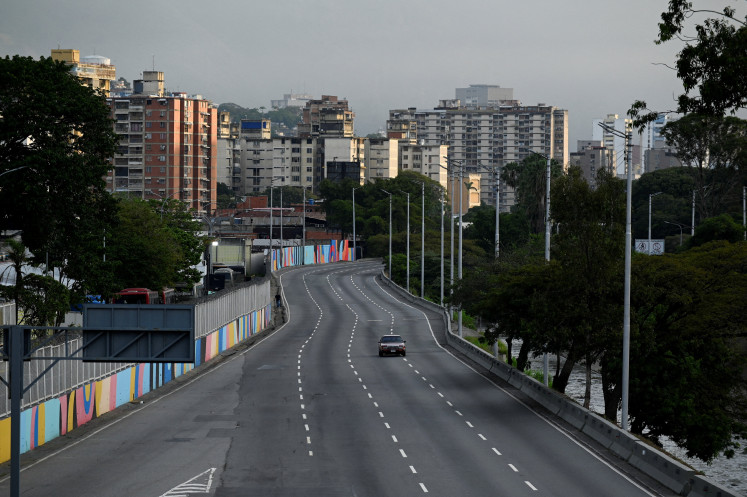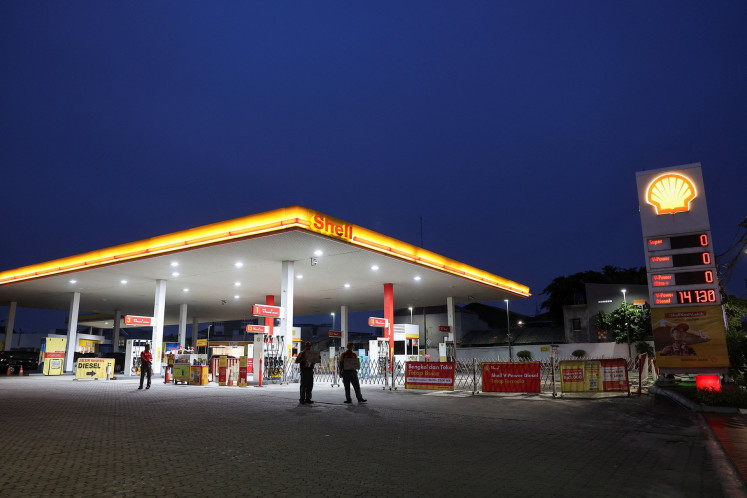Popular Reads
Top Results
Can't find what you're looking for?
View all search resultsPopular Reads
Top Results
Can't find what you're looking for?
View all search resultsEditorial: The Jokowi-Kalla platform
The economic components of the platform put forth by presidential candidate Joko 'Jokowi' Widodo and his running mate Jusuf Kalla reflect the right priorities that the nation really needs as they focus on food, energy and infrastructure
Change text size
Gift Premium Articles
to Anyone
T
he economic components of the platform put forth by presidential candidate Joko 'Jokowi' Widodo and his running mate Jusuf Kalla reflect the right priorities that the nation really needs as they focus on food, energy and infrastructure.
Food and energy security are key to a nation's political and economic stability. The Jokowi-Kalla plan to open 1 million hectares of new rice fields outside Java and build new irrigation networks for 3 million ha of rice fields between 2014 and 2019 is ambitious but not impossible with the right leadership and management.
Their plan to increase research and development in agriculture is also quite strategic because the key to agricultural productivity is high-yield seeds that can be developed only through research.
But if the Jokowi-Kalla pair wins the July election, their government should act immediately to review the enforcement of the stipulation in the 2010 Horticulture Law that requires the divestment of foreign ownership in seed development businesses to a maximum 30 percent by the end of this year.
In the energy sector, the pair's policies of prioritizing the use of natural gas and coal for electric power and strengthening incentives, legal certainty and regulatory body in the petroleum industry are indeed quite strategic.
The promotion of gas utilization through the building of more pipelines is quite possible now with the operation of two floating storage and regasification units (FSRU) north off West Java and in Lampung, respectively, and the third FSRU in Arun, next year. FSRUs enable the shipment of liquified natural gas (LNG) from Papua and Bontang, East Kalimantan, and even LNG imports from other countries to users in Java and Sumatra.
The Jokowi-Kalla plan to build 2,000 kilometers of roads, 10 airports, 10 ports and 5,000 traditional markets within the next five years. This addresses one of the most pressing problems eroding Indonesia's economic competitiveness: poor infrastructure. Inadequate infrastructure has hindered connectivity within the country and has made Indonesian logistics costs among the highest in ASEAN.
The plan to develop 10 new industrial estates complete with low-cost housing for workers will accelerate new investment in the manufacturing sector. Developed industrial estates will make Indonesia more attractive to investors
often frustrated with the poor access to ports and the arduous, punitively costly process of land acquisition. Expediting the titling of 9 million ha of farmland could be the spark that triggers long awaited land reform across the country.
The Jokowi-Kalla working programs do not specifically address the problem of the runaway fuel subsidy, a terminal cancer in the economy. But we are confident a Jokowi-Kalla government will have the political courage to take the bull by the horns.
Doing nothing about the large amount of wasteful spending on fuel subsidies would threaten fiscal sustainability, thus increasing sovereign risks and making it impossible to invest in agriculture, energy and infrastructure.










